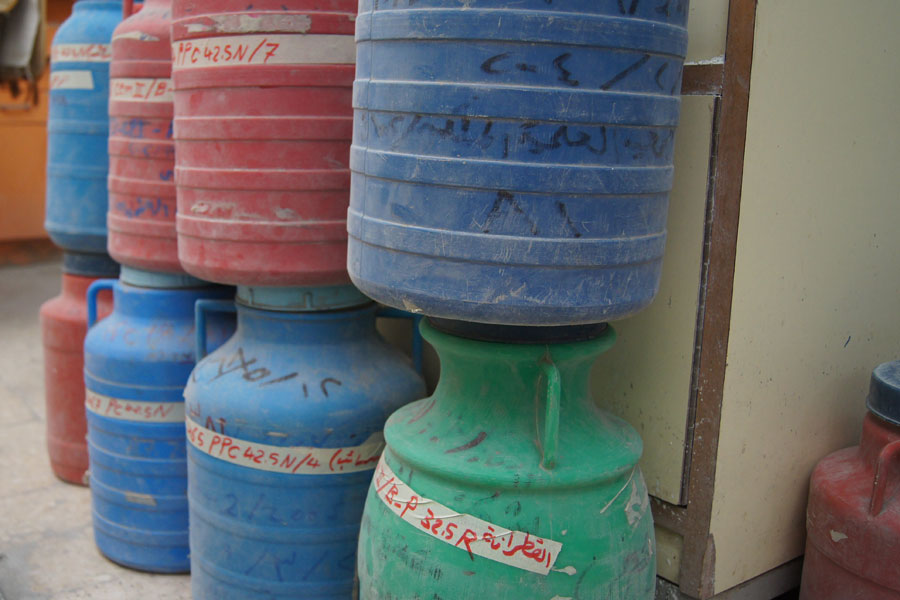Five years ago, the Kingdom of Jordan took a critically important step to conserve its scarce water resources by approving a Water Demand Management (WDM) Policy. While many middle-income and advanced economies have overemphasized supply-side solutions—a costly, myopic, and ultimately inadequate response–water-starved Jordan is beginning to see the benefits of a more balanced strategy.
DAI supported the WDM Policy development through the Instituting Water Demand Management (IDARA) project, launched in 2007 by the U.S. Agency for International Development. Initially an ambitious two-year project, it eventually extended to five full years, ending this March. The objective was to institutionalize water conservation in the urban environment.

Importantly, the WDM Policy confirmed that the responsibility for leading water conservation does not rest solely in the Ministry of Water and Irrigation (MWI) but extends across all government agencies. While IDARA’s key counterpart was the MWI’s Water Demand Management Unit, DAI deliberately worked broadly with all stakeholder groups, in a highly participatory fashion, to support three lines of action:
- Building institutional capacity for WDM
- Creating the institutional and legal environment to promote WDM
- Demonstrating select WDM initiatives to the public
The project achieved enduring impact by working with and through local stakeholders at each step. From the MWI to the Jordan National Building Council, from Miyahuna Water Company in Amman to the Vocational Training Corporation, and from the King Abdullah II Center for Excellence to the Irbid Governorate, IDARA reached out to every corner of urban water users to nurture the water demand leaders of the future.
Indeed, chief among IDARA’s legacy of achievements is this cadre of stakeholders who acknowledge the water constraints in Jordan. And they are now armed with tools to expand WDM efforts. An important objective of IDARA, for example, was to generate new data that will inform evidence-based interventions. IDARA’s end-use analyses in offices, health services, schools, universities, places of worship, hotels, restaurants, and residences generated this data and gave us the opportunity to train staff from the MWI, Water Authority of Jordan, utilities, universities, and private firms in water-auditing techniques. The results informed utility water-use efficiency plans in Amman and Aqaba.
A few of IDARA’s achievements:
- Brokered partnership between Jordanian water company Miyahuna and HSBC Bank
- Conducted residential retrofit program, which installed water-efficient faucets and showerheads in 2,000 homes
- Conducted national Let’s Save Water campaign
- Established water equipment testing laboratory and trained its personnel
- Hosted the International Water Association’s Efficient 2011 conference, attended by a record 594 people from 42 countries
The data from these studies also informed seven Best Management Practice guides, each one driven by a stakeholder task force. Available in English and Arabic, these guides show individuals and organizations how to implement water-use efficiency measures in contexts such as hospitals, hotels, offices, park landscaping, conservation programs for residential consumers, and high-rise and high-density developments. They are central to ongoing capacity building programs.
Changing The Landscape Of Conservation
One of IDARA’s components focused on building capacity and demonstration sites for water-wise landscaping. The effort started with 132 in-depth interviews of residents in 6 municipalities, and by year 2 of the program we had trained engineers from 62 municipalities in water-wise landscape principles—for example, by using native plants and shrubs requiring little water, mulch that retains water and moisture better, taking advantage of shade, and diversifying landscaping with stones and rocks.
To ensure that the approach endures beyond the life of the project, we integrated the water-wise landscaping training module into the curriculum of Jordan University’s School of Agriculture.

IDARA also brought a competitive spirit to the conservation cause. In collaboration with the Ministry of Municipal Affairs, the project hosted a competition for municipalities to demonstrate the best water-wise park. And it worked with the King Abdullah II Center for Excellence, which hosts a National Award for Excellence for exceptional performance in the private and public sectors, to integrate new water-use efficiency criteria into the award. Now, good water stewardship is increasingly recognized as a necessary part of business and public sector excellence.
Rewriting The Rule Book
One of IDARA’s most critical contributions is its support for updating the Jordanian Water Supply and Sanitation plumbing code. Over the years, the code had not adapted to the new realities of growth in Amman and elsewhere, particularly in high-rise and high-density developments, but also in the context of plumbing practices needed to assure water-use efficiency in the construction sector. In 2008, IDARA, the Royal Scientific Society, and the Jordan National Building Council set out to develop the new code. A technical committee led the process with input from architects, designers, academics, national and local governments, plumbing contractors, and material suppliers and manufacturers.
The code incorporated guidelines for rainwater harvesting and gray water reuse. IDARA also supported the creation of a Master Plumbers program with the Ministry of Labor and Vocational Training Corporation. Ultimately, the Building Quality Assurance Bylaw of 2010 took effect on January 1, 2012, for buildings of 3,000 square meters or more, and the code will phase in until it applies to all new construction, including retrofits, in 2015.
None of these efforts was quick or simple. The revision to the plumbing code alone consumed more than 100 meetings. But it was this demonstrated commitment by stakeholders across each intervention that provided the foundation for success. Counterparts—the Water Demand Management Unit central among them—drove each intervention.
Ultimately, the lives and livelihoods of all Jordanians depend on affordable access to water, but new supply-oriented solutions have little promise. Thanks to IDARA, Jordan has many more champions working to optimize and conserve life’s most essential and precious resource and showing others the way.





